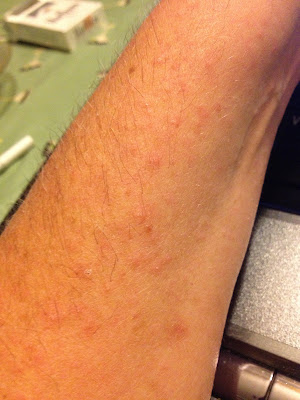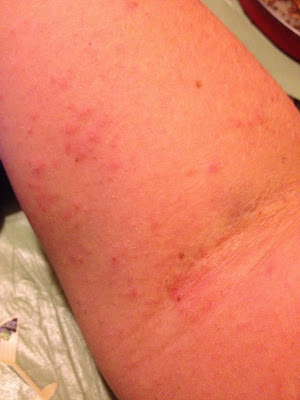Kidney Cancer Prognosis Biography
Source(google.com.pk)
Transitional cell cancer of the renal pelvis and ureter is a disease in which malignant (cancer) cells form in the renal pelvis and ureter.
The renal pelvis is the top part of the ureter. The ureter is a long tube that connects the kidney to the bladder. There are two kidneys, one on each side of the backbone, above the waist. The kidneys of an adult are about 5 inches long and 3 inches wide and are shaped like a kidney bean. The kidneys clean the blood and produce urine to rid the body of waste. The urine collects in the middle of each kidney in the renal pelvis. Urine drains from the renal pelvis through the ureter, into the bladder, where it is stored until it is passed from the body through the urethra.
Anatomy of the male urinary system showing the kidneys, ureters, bladder, and urethra. Urine is made in the renal tubules and collects in the renal pelvis of each kidney. The urine flows from the kidneys through the ureters to the bladder. The urine is stored in the bladder until it leaves the body through the urethra.
Anatomy of the male urinary system showing the kidneys, ureters, bladder, and urethra. Urine is made in the renal tubules and collects in the renal pelvis of each kidney. The urine flows from the kidneys through the ureters to the bladder. The urine is stored in the bladder until it leaves the body through the urethra.
Anatomy of the female urinary system showing the kidneys, ureters, bladder, and urethra. Urine is made in the renal tubules and collects in the renal pelvis of each kidney. The urine flows from the kidneys through the ureters to the bladder. The urine is stored in the bladder until it leaves the body through the urethra.
Anatomy of the female urinary system showing the kidneys, ureters, bladder, and urethra. Urine is made in the renal tubules and collects in the renal pelvis of each kidney. The urine flows from the kidneys through the ureters to the bladder. The urine is stored in the bladder until it leaves the body through the urethra.
The renal pelvis and ureters are lined with transitional cells. These cells can change shape and stretch without breaking apart. Transitional cell cancer starts in these cells. Transitional cell cancer can form in the renal pelvis or the ureter or both.
Renal cell cancer is a more common type of kidney cancer. Refer to the PDQ summary on Renal Cell Cancer Treatment for more information.
Misuse of certain pain medicines can affect the risk of developing transitional cell cancer of the renal pelvis and ureter.
Anything that increases your risk of getting a disease is called a risk factor. Having a risk factor does not mean that you will get cancer; not having risk factors doesn't mean that you will not get cancer. People who think they may be at risk should discuss this with their doctor. Risk factors for transitional cell cancer of the renal pelvis and ureter include the following:
Misusing certain pain medicines, including over-the-counter pain medicines, for a long time.
Being exposed to certain dyes and chemicals used in making leather goods, textiles, plastics, and rubber.
Smoking cigarettes.
Possible signs of transitional cell cancer of the renal pelvis and ureter include blood in the urine and back pain.
These and other symptoms may be caused by transitional cell cancer of the renal pelvis and ureter. Other conditions may cause the same symptoms. There may be no symptoms in the early stages. Symptoms may appear as the tumor grows. A doctor should be consulted if any of the following problems occur:
Read more: http://www.umgcc.org/gu_program/343585general-information-about-transitional-cell-cancer-of-the-renal-pelvis-and-ureter.htm#ixzz2ShNMAp4L
Kidney Cancer PrognosisSign Ribbon cells Horoscope Symbol Tattoos Research Zodiac Sign Ribbon Tattoos
 |
Kidney Cancer PrognosisSign Ribbon cells Horoscope Symbol Tattoos Research Zodiac Sign Ribbon Tattoos |

Kidney Cancer PrognosisSign Ribbon cells Horoscope Symbol Tattoos Research Zodiac Sign Ribbon Tattoos

Kidney Cancer PrognosisSign Ribbon cells Horoscope Symbol Tattoos Research Zodiac Sign Ribbon Tattoos
 |
Kidney Cancer PrognosisSign Ribbon cells Horoscope Symbol Tattoos Research Zodiac Sign Ribbon Tattoos |

Kidney Cancer PrognosisSign Ribbon cells Horoscope Symbol Tattoos Research Zodiac Sign Ribbon Tattoos
Kidney Cancer PrognosisSign Ribbon cells Horoscope Symbol Tattoos Research Zodiac Sign Ribbon Tattoos
 |
Kidney Cancer PrognosisSign Ribbon cells Horoscope Symbol Tattoos Research Zodiac Sign Ribbon Tattoos |
 |
Kidney Cancer PrognosisSign Ribbon cells Horoscope Symbol Tattoos Research Zodiac Sign Ribbon Tattoos |

Kidney Cancer PrognosisSign Ribbon cells Horoscope Symbol Tattoos Research Zodiac Sign Ribbon Tattoos

Kidney Cancer PrognosisSign Ribbon cells Horoscope Symbol Tattoos Research Zodiac Sign Ribbon Tattoos
Kidney Cancer PrognosisSign Ribbon cells Horoscope Symbol Tattoos Research Zodiac Sign Ribbon Tattoos |

Kidney Cancer PrognosisSign Ribbon cells Horoscope Symbol Tattoos Research Zodiac Sign Ribbon Tattoos
